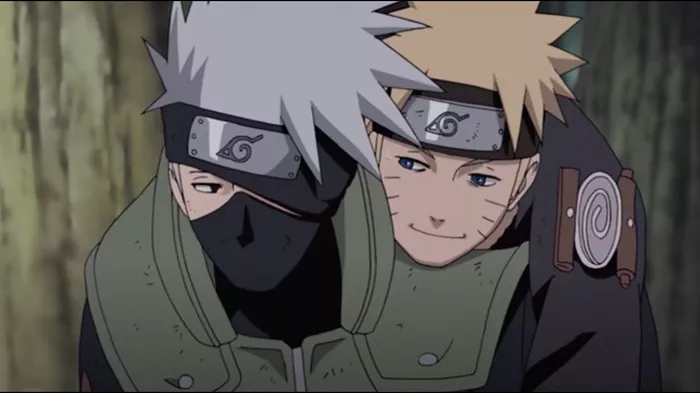The world of Naruto and its sequel Boruto: Naruto Next Generations is rich with complex characters and intricate relationships. Among these, the dynamic between Kakashi Hatake, a legendary ninja, and Boruto Uzumaki, the spirited son of Naruto, has sparked much debate among fans. Some perceive Kakashi’s attitude towards Boruto as harsh or even disdainful. This article delves into the reasons behind this perception, examining the characters’ backgrounds, personalities, and key interactions.
Kakashi Hatake: A Complex Character
Early Life and Shinobi Career
Kakashi Hatake, also known as the Copy Ninja, is one of the most skilled and respected shinobi in the Hidden Leaf Village. His early life was marked by tragedy, including the death of his father, Sakumo Hatake, and his teammates, Obito Uchiha and Rin Nohara. These events shaped Kakashi into a reserved and often cynical individual, dedicated to his duties as a ninja.
Role as the Sixth Hokage
As the Sixth Hokage, Kakashi led the village through a period of recovery after the Fourth Great Ninja War. His leadership style was characterized by pragmatism and a deep understanding of the complexities of both war and peace. Kakashi’s tenure as Hokage solidified his reputation as a wise and capable leader.
Personality Traits and Key Characteristics
Kakashi is known for his calm demeanor, analytical mind, and a strong sense of duty. He values hard work, loyalty, and the well-being of his comrades. These traits, combined with his extensive experience, make him a formidable and respected figure in the shinobi world.
Boruto Uzumaki: The Next Generation
Boruto’s Background and Personality
Boruto Uzumaki is the eldest son of Naruto Uzumaki, the Seventh Hokage, and Hinata Hyuga. Unlike his father, who grew up as an orphan and an outcast, Boruto was born into a loving family and enjoyed a relatively privileged upbringing. This contrast in backgrounds significantly influences Boruto’s personality and actions.
Differences and Similarities with Naruto
While Boruto shares his father’s determination and innate talent for ninjutsu, he lacks the same level of humility and respect for authority that Naruto developed through hardship. Boruto’s rebellious nature and occasional disregard for rules often put him at odds with older shinobi who adhere to traditional values.
See Also: Is Boruto Not an Uzumaki?
Perceived Reasons for Kakashi’s Dislike
Kakashi’s Relationship with Naruto
Mentor and Student Bond
Kakashi and Naruto share a deep bond forged through years of training and mutual respect. As Naruto’s mentor, Kakashi witnessed Naruto’s growth from a mischievous child to a revered leader. This close relationship likely influences Kakashi’s expectations of Naruto’s offspring.
Expectations from Naruto’s Offspring
Given Naruto’s remarkable journey and achievements, Kakashi might expect similar qualities in Boruto. However, Boruto’s behavior often falls short of these expectations, leading to frustration and disappointment on Kakashi’s part.
Boruto’s Disrespect for Authority
One of the primary sources of tension between Kakashi and Boruto is the latter’s frequent disregard for authority. Boruto’s tendency to challenge rules and act independently can be seen as disrespectful, especially to someone like Kakashi, who values discipline and order.
Contrast with Naruto’s Humble Beginnings
Kakashi likely sees Boruto’s privileged upbringing and occasional arrogance as stark contrasts to Naruto’s humble beginnings and perseverance. This disparity might contribute to Kakashi’s harsher attitude towards Boruto, as he wishes to instill a sense of humility and respect in him.
Generational Differences
Old Shinobi Ways vs. New Ideals
The shinobi world is evolving, and with it, the values and ideals of its inhabitants. Kakashi represents the older generation of shinobi, who uphold traditional values and methods. Boruto, on the other hand, embodies the new generation, which often embraces different ideals and approaches. This generational clash can lead to misunderstandings and conflicts.
Technological Advancements and Their Impact
The advent of advanced technology in the shinobi world further accentuates the divide between Kakashi and Boruto. While Kakashi relies on traditional ninja skills, Boruto and his peers frequently use scientific ninja tools, which Kakashi may view as undermining the essence of being a shinobi.
Key Interactions Between Kakashi and Boruto
Notable Episodes and Manga Chapters
Several key interactions between Kakashi and Boruto highlight their complex relationship. In particular, episodes where Kakashi trains Boruto or evaluates his abilities often reveal underlying tensions and differences in their perspectives.
Analysis of Key Dialogues and Actions
Analyzing specific dialogues and actions between Kakashi and Boruto can provide deeper insights into their relationship. For instance, moments where Kakashi expresses disappointment or frustration with Boruto’s actions often reflect his desire for Boruto to live up to his potential and honor the legacy of the Hokage.
Understanding the Bigger Picture
Kakashi’s Protective Nature
Kakashi’s seemingly harsh attitude towards Boruto can also be seen as a form of tough love. As someone who has experienced significant loss and hardship, Kakashi likely wants to protect Boruto from making similar mistakes and ensure he grows into a responsible and capable shinobi.
The Legacy of the Hokage
Kakashi’s reverence for the Hokage title and its responsibilities might also influence his interactions with Boruto. He understands the weight of the legacy that Naruto has built and wants Boruto to appreciate and respect it.
Conclusion
The perceived animosity between Kakashi and Boruto is a multifaceted issue rooted in their backgrounds, personalities, and the evolving shinobi world. Kakashi’s tough demeanor towards Boruto is likely driven by his high expectations, protective nature, and desire to see Boruto honor the legacy of his father and the Hokage. As Boruto continues to grow and mature, it is possible that his relationship with Kakashi will evolve, ultimately leading to mutual respect and understanding.


